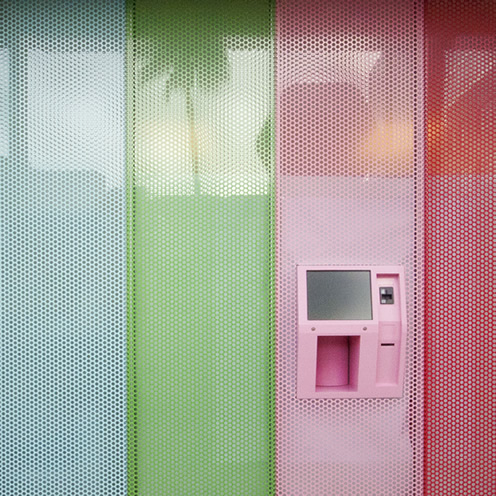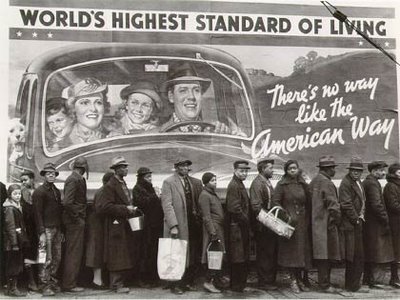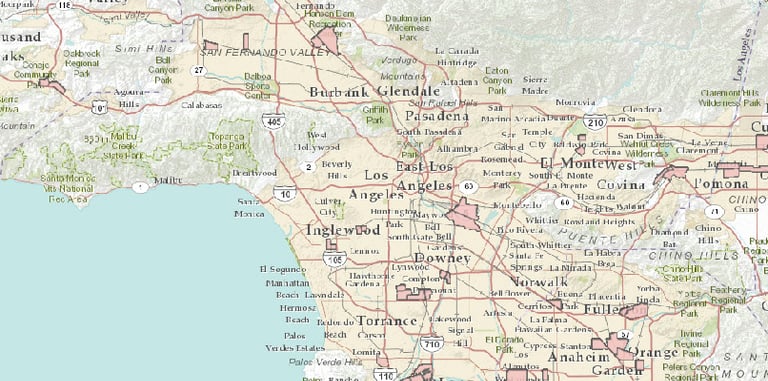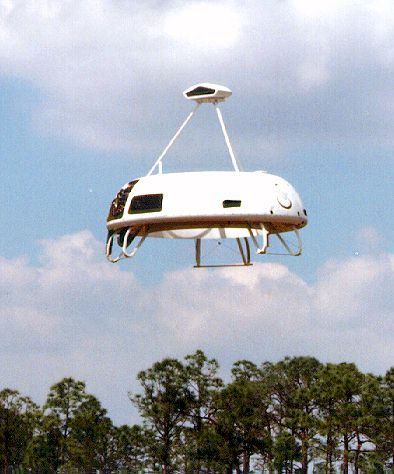Just Add a Dash of Darpa
Trenton Szewczyk
4/27/2012


It was only a matter of time before I got my military industrial complex in your boutique cupcakes. Sprinkles, the Beverly Hills cupcakery, has rolled out its latest and greatest weapon in the war on luxury confections: the automat. Freed from the constraints of human labor and reasonable operating hours, the machine ceaselessly, tirelessly fulfills our needs as consumers for high-end designer pastries. No matter the hour, one is almost guaranteed to receive any one of the thousands of sugar-laden ambrosias hidden just beyond the pastel fencing.
Though the soft tones of the machine’s facade may read prosaic, they are anything but. According to a USDA map, there are over forty food deserts in LA county alone. Food deserts are geographic regions where access to fresh and affordable food is extremely curtailed. Put into relative terms, there are areas of Los Angeles where people cannot eat an apple or a salad or even fresh bread because the infrastructure simply does not exist; meanwhile in Beverly Hills people stand waiting in line for hours for just dessert.
Yet there are even more dimensions to this phenomena, and I invite you to entertain for a minute or so the possibilities. Aside from the food desert, there’s the act of waiting in such a ridiculous line for such a ridiculous item. Let’s not forget the Great Depression’s photographs of the vast jobless masses queued up waiting for their meager meals. Now place those images, of people so poor that they cannot even provide nourishment for themselves, next to Sprinkles’ automat, where one checks-in on their 4g smartphone, announcing to all your followers that you have so much leisure time on your hands as to be able to wait in line in order to attain one of the most frivolously fetishized American confections.


No cupcakes here...
There’s something sinister about these cupcakes when socio-economic class isn’t just frosted over. They are an automated luxury (just a few steps away from the Pris Straton sex robots/replicants of Bladerunner) coupled with an inherently conspicuous act of consumption (the line, the check-in, the very publicness of the machine). Labor is alienated (no cashier) and the consumer (you can’t even pay cash). What’s more, according to the USDA map of communities labeled as food deserts all circumscribe Beverly Hills, literally forming the geographic margins.


With a tangy irony, the proprietors of Sprinkles have chosen “cupcake ATM” as the moniker for their machine, interweaving their much sought after baked goods and the banking industry. That they didn’t consider the connotative weight of ATM in relation to a luxury good is somewhat baffling. Now, instead of simply purchasing your Gluten Free Red Velvet or Chai Latte cupcakes, you are withdrawing them. You’re going to the cupcake bank, in Beverly Hills, to get that richness. The social performance is akin to playing rich (with cupcakes, of course) — trying on and performing “high class” for but a moment, only then, after the last crumb has been licked up, getting on with life as you depart from their site of fantasy.
Of course, then there’s the issue of our automated culture left to breach. The robotics requisite of Sprinkles’ ATM are now only possible on the consumer level after the military-industrial complex has itself developed more powerful versions of the technology; and while cupcake delivery systems may not top DARPA’s to-do list, the robotics used in bomb disposal are certainly cousins to the cupcake ATM. They consist of essentially the same parts put to different uses: an articulated arm, a camera with a live-video feed, and a means of locomotion. Their applications are so divergent, however, such linkages may be difficult to see. Rest assured that the hardware and software applied here are related, perhaps even put together by the same team of designers. Speculating on this adaptation of high-end military technology for the delivery of luxury consumer goods, perhaps one day, on your iPhone 8g, there will be an app that allows you to summon Sprinkles at will, delivered buzzing through the air on the wings of an unmanned aerial vehicle or perhaps on the back of Boston Dynamic’s BigDog robot.


Did someone order Dominoes, or do we live in a police state?
Even then, such observations are anything but original. In Neal Stephenson’s Snow Crash, pizzas are delivered with military precision and the deliverymen (bearing the title Deliverator) are decked out in sleek protective suits and cars akin to Kit from Nightrider. Here, however, the human element still persists and despite their fetishization and skill, Deliverators are still prone to their human condition. Perhaps one day we’ll reach that technological utopia where human error is simply computed away, our technology outmoding our existence.
I’d like to end this entry with a fun fact about the history of vending machines. From Wikipedia:
“The first reference to a vending machine is in the work of Hero of Alexandria, a first-century engineer and mathematician. His machine accepted a coin and then dispensed holy water. When the coin was deposited, it fell upon a pan attached to a lever. The lever opened a valve which let some water flow out. The pan continued to tilt with the weight of the coin until it fell off, at which point a counterweight snapped the lever up and turned off the valve.”
